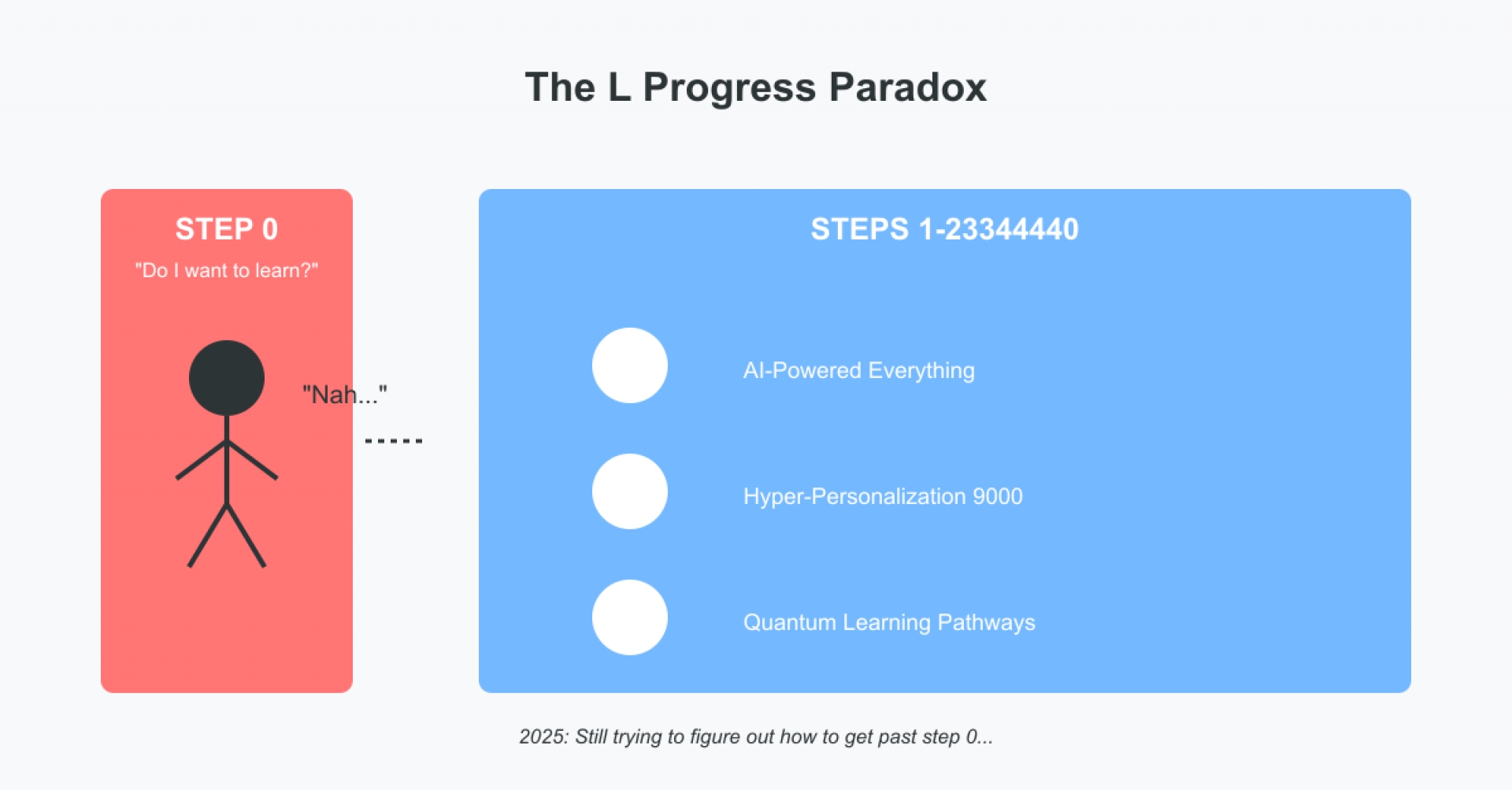After a decade in L&D, we still can't answer one fundamental question: How do you convince someone who'd rather watch paint dry than learn anything new?
That's our Step Zero. Our Learning Progress Paradox.
And spoiler alert: We have no clue how to solve it.

Sure, we're really good at patting ourselves on the back about the future of learning. AI-powered personalization. Adaptive pathways. Custom learning journeys. Soon we'll deliver the perfect training content to everyone, exactly when they need it.
There's just one tiny problem we've been expertly ignoring: None of this matters if people don't want to learn in the first place.
Here's the awkward truth: While we're busy building sophisticated learning platforms and debating the merits of microlearning vs. immersive experiences, we still can't convince someone with a fixed mindset to give a damn about learning.
And trust me, I've looked for evidence that we can.
Sure, Carol Dweck's growth mindset research is fantastic... for kids. And yes, there are plenty of studies showing "mindset interventions" in the workplace. But read the fine print: short-term effects, selective participants, and more asterisks ('that is not even a woooord' by Monica..:)) ) than a pharmaceutical ad.
Want evidence that we can reliably transform a steadfastly fixed mindset in adults? Good luck finding that unicorn.
We're like tech companies launching ever-fancier smartphones while a significant portion of the population is still refusing to turn on their old Nokia. Except Nokia users at least acknowledge phones have value.
After almost a decade only in this field, I've watched us try everything:
Gamification (because apparently adults are just tall children)
Incentives (bribing professionals to learn, what could go wrong?)
Social learning (peer pressure, but make it professional)
Storytelling (once upon a time, nobody cared...)
And yet, that core resistance remains unchanged. Maybe it's time we admit we're stuck at Step Zero.
So here's my question to fellow L&D professionals: Are we deluding ourselves? While we're racing to perfect personalized learning experiences, should we instead be focusing on this fundamental barrier? Or should we accept that some minds are as changeable as a concrete block and stop wasting resources trying to chip away at them?
I don't have the answer. But I do know that pretending this isn't a problem won't make it go away.
No matter how perfectly we personalize content, it won't matter if we can't solve Step Zero.
What do you think? Has anyone cracked this code? Or are we all just avoiding eye contact with the elephant?
 Dorottya Nagy-Jozsa PCC
today
2025-11-06
Dorottya Nagy-Jozsa PCC
today
2025-11-06
